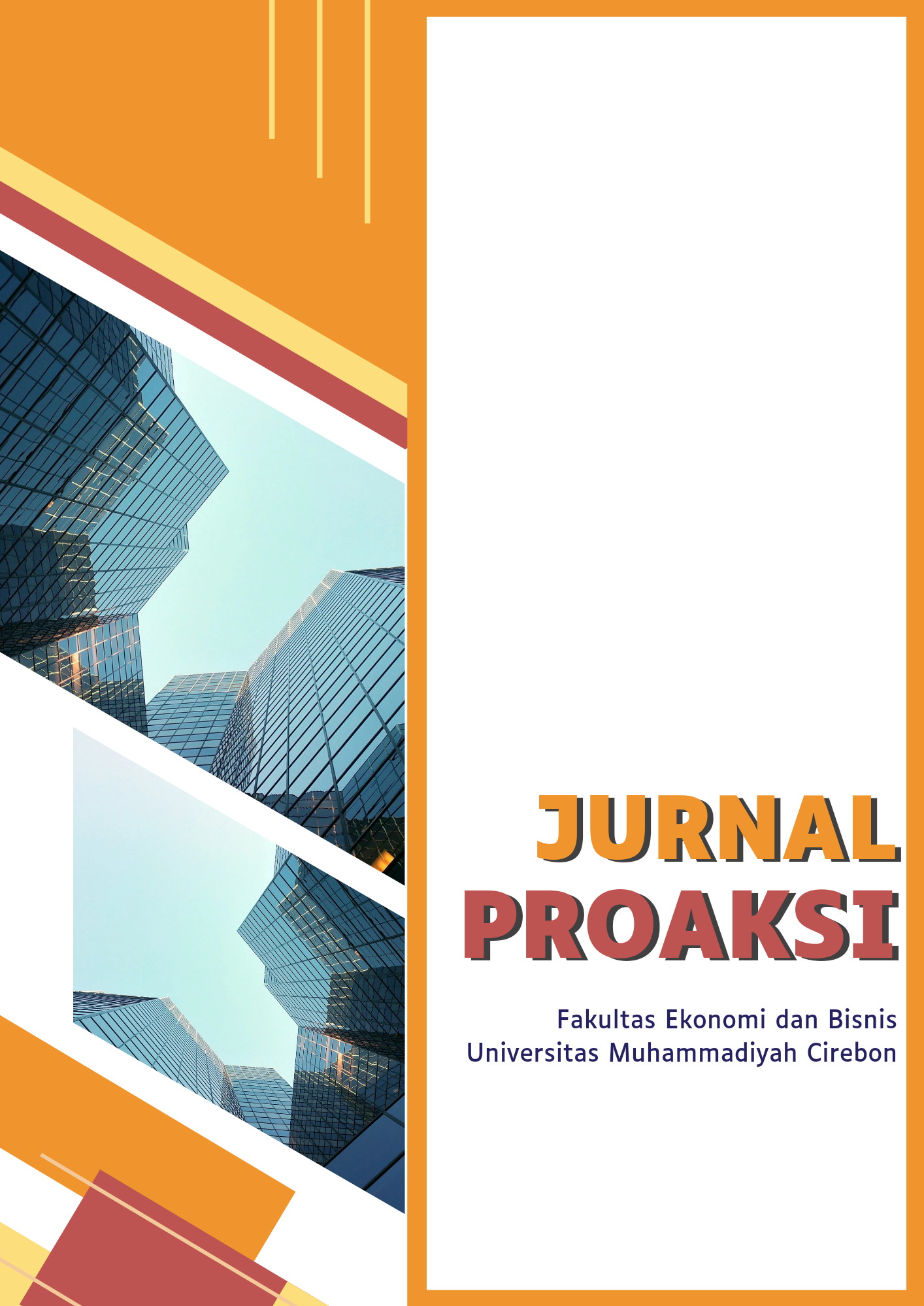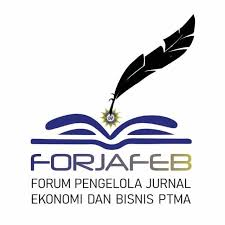Urgensi sustainability reporting pada pemerintah daerah: sebuah analisis studi wacana
DOI:
https://doi.org/10.32534/jpk.v11i4.6481Keywords:
Sustainable Reporting, Pemerintah Daerah, Studi Wacana, Transparansi, AkuntabilitasAbstract
Permasalahan lingkungan hidup saat ini menjadi isu utama yang memerlukan pendekatan holistik untuk penanggulangannya. Kerusakan alam akibat pembangunan, baik oleh pemerintah maupun sektor swasta, memperburuk kondisi ini, mengancam ekosistem dan kesejahteraan masyarakat lokal. Penelitian ini bertujuan untuk menganalisis perspektif berbagai pihak (pemerintah, badan perwakilan, dan NGO) tentang urgensi penerapan laporan keuangan berkelanjutan sebagai bentuk akuntabilitas pemerintah daerah dalam menjaga keberlanjutan lingkungan. Metode yang digunakan adalah kualitatif dengan pendekatan studi wacana. Hasil penelitian menunjukkan bahwa isu lingkungan menjadi tekanan besar bagi pemerintah, dengan dampak kerusakan yang tidak hanya merusak ekosistem tetapi juga kesejahteraan masyarakat yang bergantung pada sumber daya alam. Meskipun lingkungan diakui sebagai prioritas strategis, terdapat kesenjangan antara kesadaran pemerintah daerah dan implementasi kebijakan yang mendukung keberlanjutan. Laporan keuangan berkelanjutan, yang mengintegrasikan aspek lingkungan, sosial, dan tata kelola, diidentifikasi sebagai instrumen penting untuk meningkatkan transparansi dan akuntabilitas. Namun, untuk menerapkanya masih menghadapi tantangan, seperti belum adanya regulasi regulasi yang jelas dan pemahaman yang terbatas tentang standar pelaporan. Oleh karena itu, dibutuhkan penguatan regulasi, kebijakan pembangunan berkelanjutan, serta kolaborasi multi-pihak agar pertumbuhan ekonomi daerah tidak mengorbankan kelestarian lingkungan dan kesejahteraan sosial di masa depan.
Downloads
References
Abidi, S. A. (2020). Examining Progress on Sustainable Development Goals Across Regions through an Intertemporal Lens Syed. 9(3), 85–94. https://doi.org/10.61506/02.00011
Adams, C. A., & Frost, G. R. (2008). Integrating sustainability reporting into management practices. Accounting Forum, 32(4), 288–302. https://doi.org/https://doi.org/10.1016/j.accfor.2008.05.002
Akba?, M. Ç. (2022). Sustainability Reporting In Local Governments In Turkey: Assessments And Recommendations. Uluslararas? ?ktisadi ve ?dari Bilimler Dergisi, 8(2), 222–234. https://doi.org/10.29131/uiibd.1210103
Anindita, R., & Hamidah, H. (2020). Akuntansi Lingkungan Dalam Pitutur Luhur Kejawen. Jurnal Akuntansi Multiparadigma, 11(2), 278–296. https://doi.org/10.21776/ub.jamal.2020.11.2.17
Armstrong, A., & Li, Y. (2022). Governance and Sustainability in Local Government. Australasian Accounting, Business and Finance Journal, 16(2), 12–31. https://doi.org/10.14453/aabfj.v16i2.3
Aurelio, T., Luca, D. B., Gennaro, M., & Giulia, L. (2020). Environmental reporting, accountability and governance of local governments: An Italian multiple case study. African Journal of Business Management, 14(8), 229–242. https://doi.org/10.5897/ajbm2020.9027
Basir, I. (2023). Pengaruh Kompetensi Sumber Daya Manusia , Pemanfaatan Teknologi Informasi , Dan Komitmen Organisasi Terhadap Keandalan Laporan Keuangan Pemerintah Daerah ( Survei pada OPD Provinsi Sulawesi Tengah ). MANARANG : Jurnal Manajemen Dan Bisnis, 04(April), 149–159.
Bebbington, J., & Larrinaga, C. (2014). Accounting and sustainable development: An exploration. Accounting, Organizations and Society, 39(6), 395–413. https://doi.org/https://doi.org/10.1016/j.aos.2014.01.003
Brown, D., Dillard, J. F., Dillard, J., & Marshall, R. S. (2008). Triple Bottom Line: A Business Metaphor for a Social Construct. https://www.taylorfrancis.com/chapters/edit/10.4324/9780203892978-21/triple-bottom-line-business-metaphor-social-construct-darrell-brown-jesse-dillard-scott-marshall
Burgess, S., Propper, C., Ratto, M., & Tominey, E. (2017). Incentives in the Public Sector: Evidence from a Government Agency. Economic Journal, 127(605), F117–F141. https://doi.org/10.1111/ecoj.12422
Canciglieri Junior, O., Mattioda, R., Teixeira Fernandes, P., Detro, S., & Casela, J. (2013). Principle of Triple Bottom Line in the Integrated Development of Sustainable Products. CHEMICAL ENGINEERING TRANSACTIONS, 35, 199–204. https://doi.org/10.3303/CET1335033
Domingues, A. R., Lozano, R., Ceulemans, K., & Ramos, T. B. (2017). Sustainability reporting in public sector organisations: Exploring the relation between the reporting process and organisational change management for sustainability. Journal of Environmental Management, 192, 292–301. https://doi.org/10.1016/j.jenvman.2017.01.074
Forum, W. E. (2024). On the Global Risks Report 2024. In Economic and Political Weekly 59(9).
French, D., & Kotzé, L. J. (2018). Sustainable Development Goals: Law, Theory and Implementation. Edward Elgar Publishing. https://doi.org/10.4337/9781786438768
García-Machado, J. J., Papa, M., & Carrassi, M. (2023). The influence of the beliefs of Italian and Spanish managers in their engagement in sustainability reporting. Discover Sustainability, 4(1). https://doi.org/10.1007/s43621-023-00171-5
Hossain, I., Haque, A. K. M. M., & Ullah, S. M. A. (2023). Role of Government Institutions in Promoting Sustainable Development in Bangladesh: An Environmental Governance Perspective. Journal of Current Social and Political Issues, 1(2), 42–53. https://doi.org/10.15575/jcspi.v1i2.485
Hossain, M. M. (2018). Sustainability reporting by Australian local government authorities. Local Government Studies, 44(4), 577–600. https://doi.org/10.1080/03003930.2018.1471397
Hussain, N., Rigoni, U., & Orij, R. P. (2018). Corporate Governance and Sustainability Performance: Analysis of Triple Bottom Line Performance. Journal of Business Ethics, 149(2), 411–432. https://doi.org/10.1007/s10551-016-3099-5
Jebreel, M., Jebreel, J., & Alhamed, A. A. (2020). The impact of sustainability development reporting on the environmental performance in Jordanian government. Accounting, 6(4), 395–400. https://doi.org/10.5267/j.ac.2020.5.002
Kaur, A., & Lodhia, S. K. (2019). Key issues and challenges in stakeholder engagement in sustainability reporting. Pacific Accounting Review, 31(1), 2–18. https://doi.org/10.1108/PAR-11-2017-0092
Khan, M. A. (2022). ESG disclosure and Firm performance: A bibliometric and meta analysis. Research in International Business and Finance, 61, 101668. https://doi.org/https://doi.org/10.1016/j.ribaf.2022.101668
Lang, P. (2023). Right to a favourable environment in a system of legal values. E3S Web of Conferences, 402. https://doi.org/10.1051/e3sconf/202340208049
Mihai, F., & Aleca, O. E. (2023). Sustainability Reporting Based on GRI Standards within Organizations in Romania. Electronics (Switzerland), 12(3). https://doi.org/10.3390/electronics12030690
Mol, A., van Schie, V., & Budding, T. (2024). Drivers of sustainability reporting by local governments over time: A structured literature review. Financial Accountability and Management, October 2023, 1–30. https://doi.org/10.1111/faam.12407
Moses, E., Che-Ahmad, A., & Abdulmalik, S. O. (2020). Board governance mechanisms and sustainability reporting quality: A theoretical framework. Cogent Business and Management, 7(1). https://doi.org/10.1080/23311975.2020.1771075
Mulawarman, A. dedi;, & Kamayanti, A. (2018). Towards Islamic Accounting Anthropology: how secular anthropology reshaped accounting in Indonesia. Journal of Islamic Accounting and Business Research. https://doi.org/10.1108/ JIABR-02-2015-0004.
Natalia, I. (2022). Refleksi Yudhistira Dalam Tanggung Jawab Sosial Dan Akuntansi Lingkungan. Jurnal Akuntansi Multiparadigma, 13(1), 42–59. https://doi.org/10.21776/ub.jamal.2021.13.1.04
Nazaruddin, I., Rahmandani, Y. M., & Sibuea, S. P. A. (2023). Determinants of Financial Reporting Local Government Organization Transparency and Accountability as a Mediator. Jurnal Ilmiah Akuntansi Dan Bisnis, 18(2), 276. https://doi.org/10.24843/jiab.2023.v18.i02.p06
Niemann, L., & Hoppe, T. (2018). Sustainability reporting by local governments: a magic tool? Lessons on use and usefulness from European pioneers. Public Management Review, 20(1), 201–223. https://doi.org/10.1080/14719037.2017.1293149
Othman, R., Nath, N., & Laswad, F. (2017). Sustainability Reporting by New Zealand’s Local Governments. Australian Accounting Review, 27(3). https://doi.org/10.1111/auar.12153
Republik Indonesia. (2012). Peraturan Pemerintah Nomor 47 Tahun 2012 Tentang Tanggung Jawab Sosial dan Lingkungan Perseroan Terbatas. 1–6. Retrieved from https://peraturan.bpk.go.id/Details/5260/pp-no-47-tahun-2012
Republik Indonesia. (2017). Peraturan Presiden Nomor 59 Tahun 2017 Tentang Pelaksanaan Pencapaian Tujuan Pembangunan Berkelanjutan. 53(4), 130. Retrieved from https://peraturan.bpk.go.id/Details/72974/perpres-no-59-tahun-2017
Roberto, F., Maglio, R., & Rey, A. (2020). Accountability and Sustainability Reporting in the Public Sector. Evidence from Italian Municipalities BT - CSR and Sustainability in the Public Sector (D. Crowther & S. Seifi (eds.); pp. 19–34). Springer Nature Singapore. https://doi.org/10.1007/978-981-15-6366-9_2
Sarabdeen, J. (2024). The Role of Government in Driving Sustainability: A Public Policy Perceptive. Emerging Science Journal, 8(3), 1184–1200. https://doi.org/10.28991/esj-2024-08-03-023
Shahib, H. M., Sukoharsono, E. G., Achsin, M., & Prihatiningtias, Y. W. (2020). Developing Local Government’s Socioenvironmental Accountability: Insights from Indonesian Socioenvironmental NGOs’ Annual Reports. In K. C. Yekini, L. S. Yekini, & P. Ohalehi (Eds.), Environmentalism and NGO Accountability (Vol. 9, pp. 27–54). Emerald Publishing Limited. https://doi.org/10.1108/S1479-359820200000009003
Uyar, A., Karmani, M., Kuzey, C., Kilic, M., & Yaacoub, C. (2022). Does Governance Quality Explain the Sustainability Reporting Tendency of the Public Sector? Worldwide Evidence. International Journal of Public Administration, 45(13), 931–947. https://doi.org/10.1080/01900692.2021.1900243
Uyar, A., Kuzey, C., & Kilic, M. (2021). Testing the Spillover Effects of Sustainability Reporting: Evidence from the Public Sector. International Journal of Public Administration, 44(3), 231–240. https://doi.org/10.1080/01900692.2019.1677711
Vanclay, F. (2002). Impact assesment and the triple bottom line: Competing pathways to sustainability, 27-39. Retrieved from Frank-Vanclay-Impact-Assessment-and-the-TBL-2005.pdf
Williams, B., Wilmshurst, T., & Clift, R. (2009). Sustainability reporting in local government in australia-a preliminary analysis christchurch, new zealand sustainability reporting in local government in australia-a preliminary analysis. Australasian Conference on Social and Environment Accounting Research (CSEAR 2009), December. Retrieved from https://figshare.utas.edu.au/articles/conference_contribution/Sustainability_reporting_in_local_government_in_Australia_-_a_preliminary_analysis/23087735/1/files/40814021.pdf
Williams, B., Wilmshurst, T., & Clift, R. (2010). The Role Of Accountants In Sustainability Reporting – A Local Government Study. Sixth Asia Pacific Interdisciplinary Research in Accounting Concerenfe(APIRA) (pp. 1-18). REtrieved from https://www.academia.edu/download/44878139/THE_ROLE_OF_ACCOUNTANTS_IN_SUSTAINABILIT20160418-3347-1gpxqjh.pdf
Downloads
Published
Issue
Section
License
Copyright (c) 2024 Indra Basir, Muhammad Ihsan Ansari, Nur Fitriani

This work is licensed under a Creative Commons Attribution 4.0 International License.




















